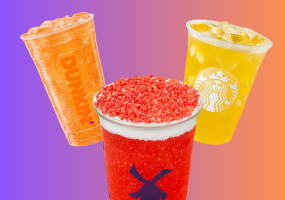We all know that drinking and driving can be dangerous--but exactly how dangerous is it? It turns out that the role of alcohol in traffic deaths may be substantially underreported on death certificates. This could mean that drinking alcohol may be far riskier than we may have thought.
Between 1999 and 2009, more than 450,000 Americans were killed in traffic crashes. Yet where alcohol was involved, death certificates frequently listed alcohol as a cause of death. This makes it more difficult to track the amount of alcohol-related traffic accidents that occurred.
"We need to have a handle on what's contributing to the leading cause of death among young people," said Ralph Hingson, one of the researchers, in a news release. "You want to know how big the problem is, and if we can track it. Is it going up, or going down? And what policy measures are working?"
So exactly how many people were killed by alcohol-related accidents? The researchers looked at a database known as the Fatality Analysis Reporting System (FARS). They then compared data from this system to death certificate data from across the U.S. In the end, they found that death certificates greatly underreported the role of alcohol in traffic deaths. In fact, while just over 3 percent were listed to have alcohol as a contributing cause, it was more like 21 percent.
The findings reveal that the role of alcohol in injury deaths may be seriously underestimated on death certificates. More specifically, this could mean that alcohol may be far deadlier than previously thought. In fact, numbers are probably even larger if you include other accidental, alcohol-related deaths like falls, drowning and others.
It's important to understand how widespread the problem is. More specifically, states should more often test for alcohol in the case of traffic accidents. This way, scientists can gain a clearer picture of the situation, and policies can be changed in order to help curtail deaths.









